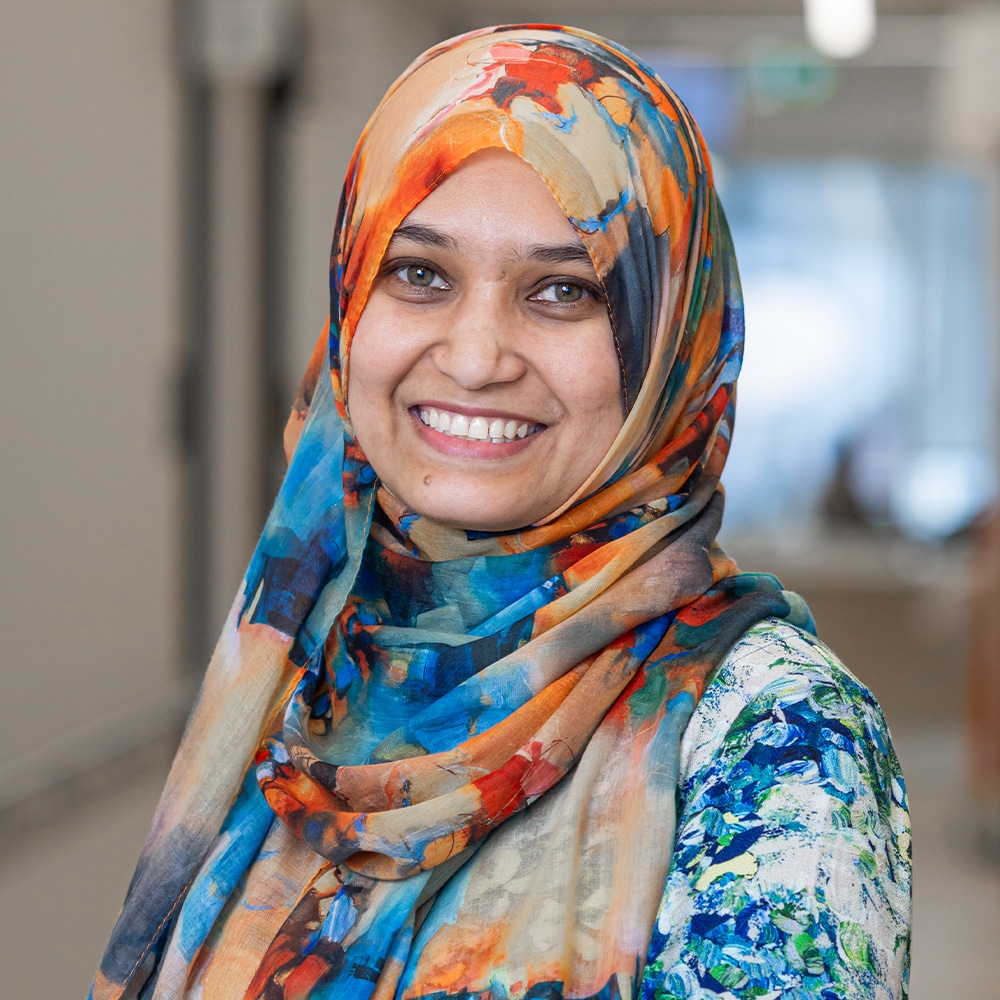
Dr Sifat Sharmin is a statistician and a research fellow in the Clinical Outcomes Research (CORe) Unit at the University of Melbourne.
Dr Sharmin finds the intricacies of MS captivating and loves to dive deep into the vast realm of data. to reveal breakthroughs that could positively impact the lives of people with MS.
Regarding what she most loves about working in the lab, Dr Sharmin says each day presents a canvas of hope and possibilities, inviting the exploration of novel ideas.